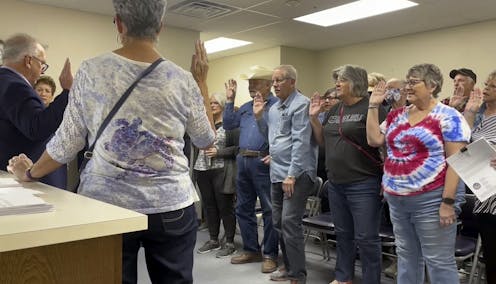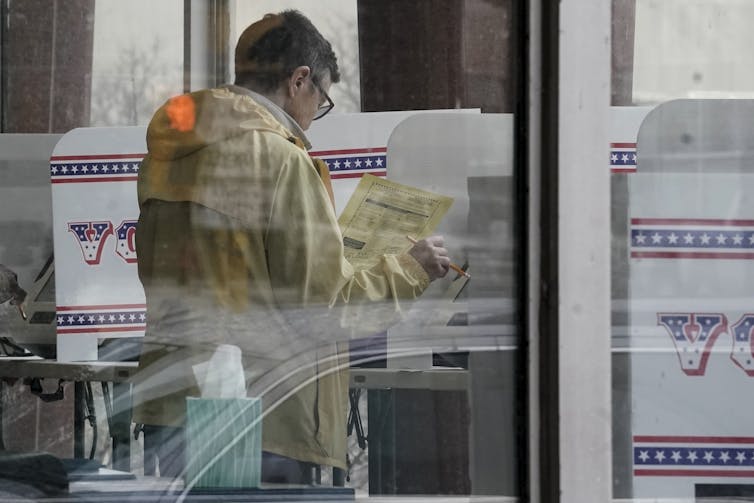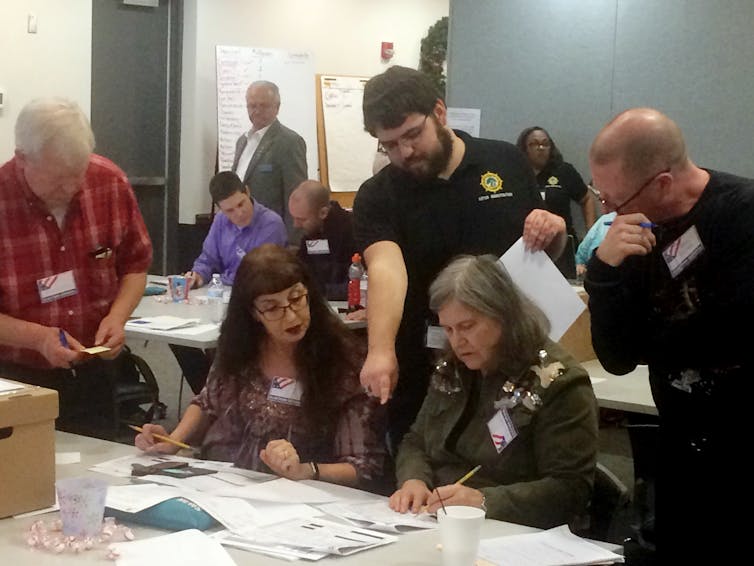How to ensure election integrity and accuracy – 3 essential reads
Amid discussion of how best to conduct and tally a hotly contested election that is potentially subject to nefarious meddling, three experts explain the basics.

It’s almost certain there will be questions about the integrity of the 2022 midterm elections. In fact, some concerns about machine counting have already sparked one Nevada county to seek to hand-count all ballots. Several scholars of elections have written for The Conversation U.S. about ways to ensure voting is conducted and counted fairly and accurately. It all starts with paper ballots.
1. Paper is secure
Paper ballots, including those sent by mail, are not ripe for fraud, reported election law scholar Steven Mulroy at the University of Memphis: “[H]aving a paper ballot is a key way to protect public trust in elections, allowing recounts in case machines are hacked or suffer software or hardware problems that could affect vote counting.”
Even when many people vote by mail, which Mulroy also says is a secure method of voting: “Vote-by-mail states have not seen a higher rate of election fraud cases than states with strict rules on who can vote absentee, according to a database of fraud cases compiled by the Heritage Foundation, an organization concerned about voting fraud.”
Read more: How to protect elections amid the coronavirus pandemic

2. Paper is key
In fact, paper ballots are the best way to ensure the votes are counted correctly, wrote Herbert Lin, a Stanford cybersecurity scholar:
“If hacked, an electronic voting machine cannot be trusted to count votes accurately. In an election conducted with paper ballots, the ballots themselves can be examined and recounted.”
“The idea of recounting electronically cast votes is meaningless,” he wrote. Without something physically marked by each individual voter, “[a]ny problems … would be impossible to fix, calling into public question the integrity of the whole process and the validity of any results.”
Read more: Iowa caucuses did one thing right: Require paper ballots

3. Manual counts aren’t necessary
But using paper ballots doesn’t mean counting has to happen by hand.
Computer scientist Eugene Vorobeychik at Vanderbilt University has studied ways to count votes by machine – which is much faster than by hand – while still ensuring accuracy. Essentially, he said, paper ballots can help confirm – or not – a vote tally in the event of an audit.
“[A]fter the election,” he wrote, “auditors can compare electronic voting results to the results documented in the paper trail. If they don’t agree, then something has gone wrong – either accidentally or as a result of outside interference – and a newly verified tally of the actual paper votes can be used to determine the winner.”
Editor’s note: This story is a roundup of articles from The Conversation’s archives.
Read These Next
AI’s growing appetite for power is putting Pennsylvania’s aging electricity grid to the test
As AI data centers are added to Pennsylvania’s existing infrastructure, they bring the promise of…
Why US third parties perform best in the Northeast
Many Americans are unhappy with the two major parties but seldom support alternatives. New England is…
Abortion laws show that public policy doesn’t always line up with public opinion
Polls indicate majority support for abortion rights in most states, but laws differ greatly between…






